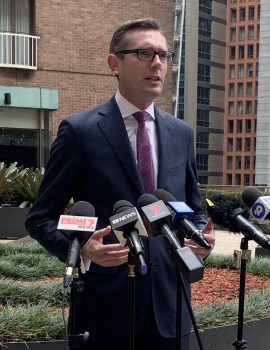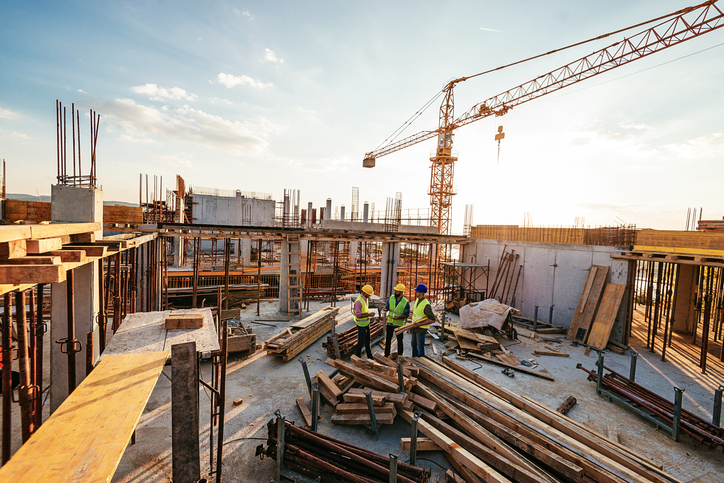The NSW government has boosted its infrastructure budget to close to $100 billion over the next four years and promised a ‘golden century of infrastructure investment’.

Treasurer Dominic Perrottet released the NSW half-yearly budget review on Thursday morning, announcing an increase in funding for the state’s infrastructure program from $93 billion in the June budget to $97.3 billion to 2022-23.
The increase follows investment decisions and funding for Sydney Metro West, Western Harbour Tunnel, Warringah Freeway Upgrade and the Sydney Fish Market.
Mr Perrottet said the state was now seeing a “golden century of infrastructure investment”.
“(There are) record amounts of investments into things that matter for the people of our great state,” he told reporters.
“(And) record amounts of investments into schools, hospitals and public transport, so that people get home to their families faster.”
This investment into infrastructure will support jobs and add half a percentage point to economic growth on average over two years, the government says.
Infrastructure investments projected over the four years to 2022-23 will include:
- $10.2 billion for hospitals and health facilities
- $7.3 billion for schools and skills infrastructure
- $4.0 billion for justice and emergency services infrastructure
- $57.5 billion for public transport and roads.
The program will be funded by operating surpluses, cash and financial assets and borrowing.
Infrastructure projects under pressure
Mr Perrottet acknowledged there would be challenges in building record amounts of infrastructure and that some projects were under “substantial pressure”.
However, the government was committed to ensuring all infrastructure projects would be delivered on time and on budget.
“There are always challenges when it comes to the construction of infrastructure, I’m not going to shy away from that,” he said.
“And I believe those challenges will continue to grow as other states come online with infrastructure investment.
“My job, from a financial perspective, is to manage our projects as best as possible to build on time and on budget and that’s what I’ll continue to do.”
The government was open for business, Mr Perrottet said.
“We will work with any organisation and any company that is able to deliver our infrastructure projects on time, on budget, in a way that’s going to make a real difference to the people of the state,” he said.
The government says nearly 75 per cent of public sector engineering work was undertaken by the private sector last year and it’s anticipated that private business investment will double its historical average in 2019-20.
But Labor said the NSW government was failing to deliver on infrastructure projects.
Shadow Treasurer Walt Secord said the state had failed to secure Federal spending for projects like the Sydney Metro West and the Parramatta light rail, as well as improved rail links to Canberra via Goulburn and Queanbeyan and other important rural and regional transport and road projects.
More support for communities affected by drought and bushfires
Meanwhile the treasurer also announced a further $48.2 million to help communities affected by bushfires, in a partnership with the Federal Government.
“I have communicated to the minister, to the commissioner, that any financial support they need to ensure that communities are safe, that once these bushfires have passed, that the communities have the support to get back on their feet, that they will have,” he said.
Additional measures have also been provided to support drought-affected communities, with the total support now reaching almost $2 billion.
“(This) we could only do because of our strong financial position in our state,” Mr Perrottet said.
“And my expectation is that over the next six months, there’ll be further support provided for drought affected communities and those affected by bushfires.”
The half-yearly review announced a diminished surplus of $702 million in 2019-20.





Leave a Reply